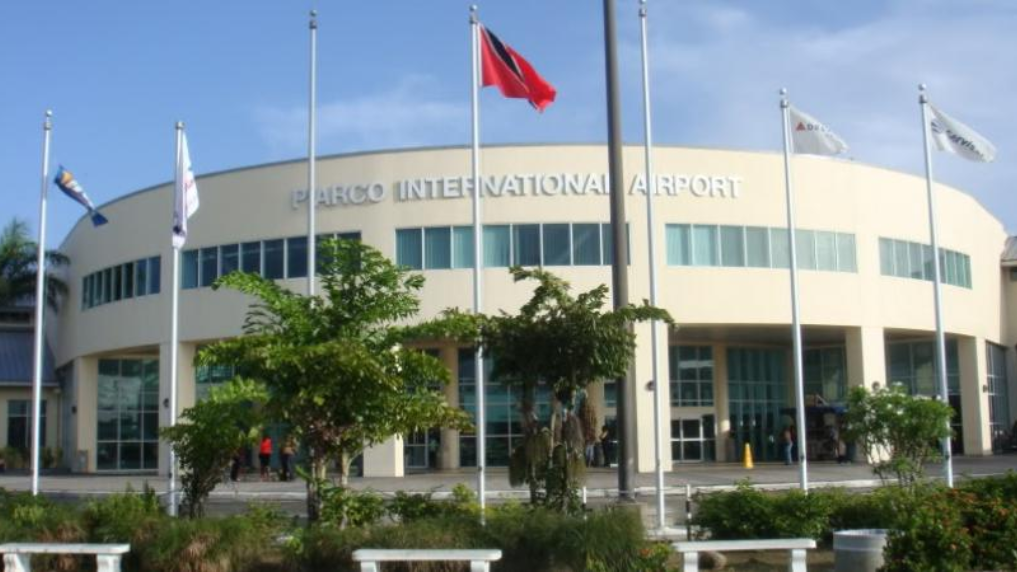(Trinidad Guardian) A female passenger who arrived at Piarco International Airport from Guyana on Monday night on a journey that originated in Hong Kong was sent back to the port of embarkation.
This was confirmed by Chief Medical Officer Dr Roshan Parasram who said the woman “did not have any symptoms or anything that was suspicious but she was returned because of the travel restrictions from China.”
He told Guardian Media: “I believe she would have gone through other territories, including Hong Kong, New York and Guyana and then to Trinidad. Based on our travel restrictions for persons leaving China within 14 days of departure, she was returned to the last port of call based on the Cabinet note and the immigration laws.
“I don’t know what flight she came in from but I only know of that woman who came in from Guyana and she would have spent some time at our airport waiting on departure back to the port of call.”
Commenting on the incident during an interview of CNC3’s The Morning Brew, Chief Immigration Officer Charmaine Gandhi-Andrews said officials at this country’s ports of entry are alerted right away—via advance passenger information from airlines—when passengers originate from China.
However, some persons have more complicated travel itineraries and immigration officials are only able to deduce their origin during the interview and by looking at all their travel documents and passports. “We had one such case yesterday and that passenger was returned to their port of entry,” she said.
“They were screened by port health; there was no issue. However, because of the travel ban, that person was returned to their port of embarkation.”
Ghandi-Andrews said citizens and permanent residents of this country cannot be refused entry. However, they will be screened and possibly even quarantined if they have returned from a country of interest for the virus, and pose a potential infection risk.
The incident caused some concern among airport workers, including Immigration and customs officers, who are calling for more stringent screening processes, including full-body sanitisation spraying for all arriving passengers as they disembark from the respective aircraft.
One airport worker, speaking on condition of anonymity, said: “We think that there should be more precautionary measures at the airport… maybe have a system where all passengers are screened and sanitised by full-body spraying before they enter the terminal. The availability of more gloves, face masks and hand sanitisers too.”
Ghandi-Andrews said 1,000 masks were ordered last week and it is becoming “more imperative that all officers utilise it.”
With regards to the screening process, she said an assistant chief and two Grade IV officers have been assigned to the airport to oversee the coronavirus screening process. Dr Vishwanath Partapsingh, Principal Medical Officer at the Health Ministry, said risk of the novel coronavirus nCoV-2019 spreading to T&T is relatively low, compared with other places. However, while there is no need to panic, the country cannot afford to be complacent. Dr Partapsingh says the screening systems are extremely detailed to determine travellers’ possible exposure to nCov-2019, once they are coming from countries of interest.
“When you look at the exit screening of those coming out of these ports, it is quite intense. There is a temperature scanning. There is also the exposure history ascertained: ‘Did you travel or go to a market with live animals? Did you have any live animals? Did you come into contact with anyone who displayed any of the symptoms?’ That is the base of the screening,” he said.
“When you look at the cases in the other countries outside of mainland China, the cases all had a direct exposure history—either travel to or had a direct, close contact with someone who was confirmed with a case.”
Dr Partapsingh said reducing risk ultimately comes down to each person practising good hygiene at all times, especially when coughing and sneezing, and most importantly—frequently washing one’s hands with soap and water.
He also warned about cross contamination for those using masks and gloves to protect themselves from possible infection.
“You have a mask on; you think all is well. You have gloves on; you think all is well. But then you’re on the phone. You have the pen. You touch the passport. You adjust the mask. And so, you have the potential to cross contaminate for any virus or any sort of pathogen that comes in.
“Hand washing is key. Maintaining a distance with someone who you know is sneezing and coughing is key.”
Last Thursday, Cabinet agreed to a travel restriction on anyone travelling from China to T&T, in light of the spread of the coronavirus. Health Minister Terrance Deyalsingh announced that “persons who are presently living in China or visiting China, regardless of nationality, will not be allowed entry into Trinidad and Tobago for 14 days after leaving China.”






